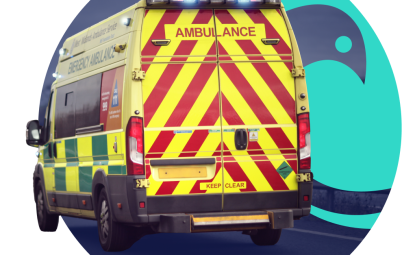When Can Clinical Negligence Occur?
Clinical negligence, also known as medical negligence, happens when the actions or inaction of a healthcare professional fall below the expected standard of care, resulting in the patient suffering harm. When treating a patient, such as offering a diagnosis, medical treatment or conducting surgery, doctors, nurses and other relevant staff have benchmarks to follow to safeguard the person’s health and wellbeing. Failing to meet these standards can have significant consequences for the patient, including causing injury, worsening their condition or leading to death.
Negligence can come from mistakes, errors in judgment, malpractice, or other preventable accidents. Medical professionals can include public healthcare staff, such as those working at your local GP surgery (e.g. doctors and administration personnel) or hospitals, or private healthcare providers like dental surgeries, cosmetic clinics and nursing homes.
Common examples of incidents that lead to medical negligence include:
- Delayed diagnosis or misdiagnosis of a condition
- Prescribing or administering incorrect medication
- Surgical mistakes, such as leaving medical equipment in the body
- Not properly informing the patient about risks
- Failing to arrange essential follow-up appointments
- Inadequate monitoring after treatment
- Lack of hygienic care, leading to infections
- Ignoring post-treatment complications
- Administering the incorrect amount of anaesthetic
- Maternity mistakes, leading to birth-related injuries for the mother and/or child
What Compensation Can I Claim?
Compensation for medical negligence can come in various forms, including General Damages and Special Damages. General damages may cover factors like the pain and suffering of the deceased, their injuries and impairment, and their reduced quality of life. Guidelines from the Judicial College are often used to calculate these types of damages. Special damages cover expenses and financial costs incurred due to the negligence, including medical fees, loss of earnings, care costs, funeral expenses, etc. Other considerations include dependency claims (loss of financial support or services like childcare), the bereavement award and other potential compensation avenues.
Contact our solicitors to learn more about the types of compensation you might be eligible for based on your specific situation.
Who Pays the Compensation for Medical Negligence?
People often worry about making a medical negligence claim because of its negative impact on the organisation, such as a hospital or GP surgery, and the people who work there. Firstly, the individual doctor or healthcare professional will not be responsible for paying the damages. Private healthcare providers should have relevant insurance policies to cover scenarios like negligence; therefore, their insurance company will be responsible for paying the compensation. The NHS Resolution, a department for resolving concerns and disputes, will usually handle compensation claims made against NHS Trusts. Compensation is crucial for helping victims and families with financial support while holding professionals accountable to prevent the same mistake from happening again, so don’t hesitate – get your claim in today.
Examples of Medical Negligence Deaths
The death of a family member due to medical negligence can be a challenging circumstance to come to terms with. Medical professionals are there to look after us and help us overcome health issues, so it’s a massive betrayal of trust when someone dies under their care. Medical negligence, also known as medical malpractice, is defined as a medical professional’s behaviour that deviates from the care standards of their profession. Examples include misdiagnosis, wrong procedures, post-operative infections, and misprescribing medication.
Medical negligence can cause life-changing injuries and death. It’s important to claim compensation for a wrongful death caused by medical negligence to ease the financial burden and ensure the professional is held responsible and doesn’t make the same mistake again. Below are some examples of compensation payouts for cases involving fatal medical negligence.
NHS Trust Fined £2.5 Million Over Two Deaths
An NHS trust has been fined following the tragic death of two patients. Natalie Billingham, aged 33, died from multiple organ failures in March 2018 caused by an infection. In the same month, Kaysie-Jane Robinson, aged 14, also died from an infection. It was ruled that both died from sepsis after being ‘exposed to a significant risk of avoidable harm’ while under the care of Russells Hall Hospital in Dudley.
The Care Quality Commission prosecuted the Dudley Group NHS Foundation Trust for breaching the 2008 Health and Social Care Act, noting that the hospital failed to address known safety failings raised in previous months. A judge fined the trust £2,533,332 and ordered it to pay £38,000 in prosecution fees.
Family Get £160k Following Mother’s Death
A 36-year-old mother of two tragically died at home after being misdiagnosed at the Princess of Wales Hospital in Bridgend. The woman, Jade Ellis, called NHS 111 due to sudden arm and chest pain she was experiencing. At the hospital, she was diagnosed as having a trapped nerve and given paracetamol before being discharged within half an hour of arriving. Soon after arriving at her home in Port Talbot, Ms Ellis suffered a heart attack, and her 18-year-old son, Brandon, started CPR. Sadly, it was too late, and she died in his arms.
It was found that Ms. Ellis had symptoms consistent with acute coronary syndrome, and the Cwm Taf Morgannwg University Health Board, which has since apologised for its failings, admitted liability for ‘breach of duty and causation’. At the hospital, she was given only a brief electrocardiogram (ECG) test. No blood tests were carried out, which could have saved her life. The trust paid £160,000 in compensation to the family, with £30,000 covering legal costs.
Start Your Claim for Fatal Medical Negligence Compensation
Starting a claim might feel overwhelming and the last thing on your mind during this difficult time, but our expert solicitors are here to guide you. We’re proud to adopt a compassionate approach, focusing on providing clients with the advice and support they need while helping them secure the maximum compensation they deserve.
Our process starts with an initial no-obligation consultation. Clients can contact us via phone or email to describe their situation, and we will explain the legal options available to them and answer any questions they may have. If the client appoints us to manage their fatal medical negligence claim, we will work immediately to build the strongest possible case by collecting crucial evidence. We will submit the claim on behalf of the client and aim to settle the case as smoothly and quickly as possible, including negotiating with the opposing party to reach a suitable settlement. Throughout the process, we will remove the hassle from the client, allowing them to focus their time and attention elsewhere.
If you believe you have a claim or have any questions, click the button below to contact us.





